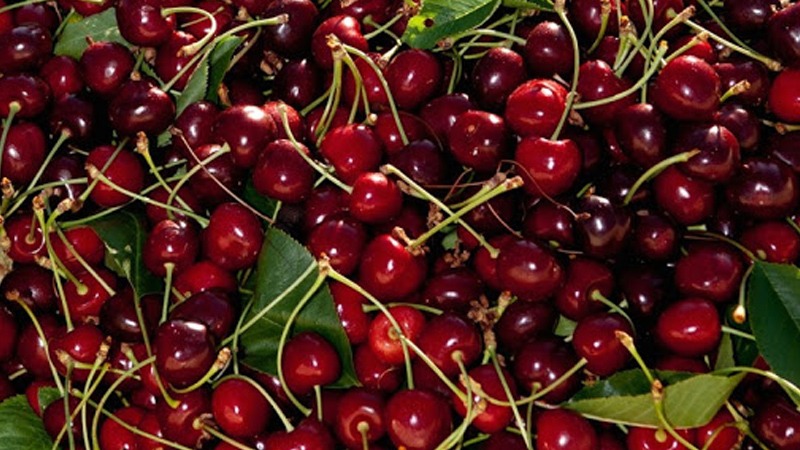Pakistani cherries to earn big in Chinese market
While talking to media, the Federal Minister for National Food Security and Research, Syed Fakhar Imam, has said that Pakistan’s cherry production is small compared to other cherry producers of the world, which can be increased with Chinese assistance. He added that China is a big enough market for Pakistani cherries which can also bring in a lot of revenue.
ISLAMABAD: Soaked in summer sun, scarlet cherries glow softly in trees standing tall at the foothills of the Himalayas and Karakoram mountain ranges in Pakistan’s northern Gilgit-Baltistan region, a land with ample varieties of fruits including sweet cherries, tangy apricots, and juicy pears during this part of the year.
Nourished by fresh glacial water, and ripened in golden sunbeams coupled with gentle breeze whirling to and fro in the lap of world’s highest peaks, the cherries can relish the taste buds, and experts believe the cherries will also bloom the lives of people in the area if they reach in high-end Chinese and other markets of the world.
According to Pakistan’s Ministry of Planning, Development and Special Initiatives, cherry is grown at over 2,500 hectares of land in Pakistan with Gilgit-Baltistan and the southwestern Balochistan province being the two major cherry producing areas of the country, and Pakistan’s collective yield of cherry in 2016 was over 6,000 tons.
Pakistan is currently not so competitive in terms of cherry production and processing as compared to some countries in the world, but the situation could get better if farmers in the cherry-growing areas are given proper guidance, knowledge and technology to meet the demands of international markets, experts say.
Pakistani cherry has not been so far able to reach any international market, except being sold in a few markets in the United Arab Emirates (UAE), because local farmers do not know the process and procedures to register their products in the international markets. And due to lack of knowledge, it is hard for them to get international certifications to access foreign high-end trading hubs.
Zulfiqar Ali Ghazi, 47, grows cherries in Gilgit and also exports the fruit to the UAE after collecting it from locals.
Ghazi, who has been associated with the cherry production and distribution business for more than one and a half decade, said in a conversation with Xinhua that currently there were 19 varieties of cherries in the Gilgit-Baltistan region, and only a few of them were suitable for export.
The government gave away many cherry plants to farmers this year to enhance the fruit production in the area and to support locals, he said, adding it was the right time to focus on growing the varieties, which were being demanded in international markets.
“The government should work on getting the international certificates to approve exports of cherries and help us develop a cold chain to preserve the cherries, whose current shelf life is seven to 10 days. Pakistani cherries have a huge potential, but they need urgent support to make their mark in international markets,” he said.
Talking to Xinhua, Federal Minister for National Food Security and Research, Syed Fakhar Imam, said the cherry fruit had not made any significant entry into the international market despite having potential and the government was devising plans to uplift the agricultural sector, which would eventually benefit all farmers including the cherry producers.
“Distinctive flavor of our fruits will have an impact on high-end markets, and to achieve that target, we must have a system to regulate the standard and quality of cherries to meet the requirements of international markets, eventually leading to a greater international demand for it,” he said.
Pakistan’s cherry production was small due to which it was not eyeing so many foreign markets except China, which was a big consumer of cherries, the minister said. He added the cooperation between the two countries in agriculture under the second phase of the China-Pakistan Economic Corridor would also encourage Chinese investors to invest in the country.
“Many Chinese have shown interest in investing in Pakistan and if they invest in cherry growing areas in the form of corporate farming, value-addition and food processing, it will not only benefit the investors, but also create a win-win situation for local public too.”
Cherry prices were high in the Chinese market, and once Pakistani cherries entered the country, it would earn local farmers and others around them a big profit margin, encouraging them to increase planting, the minister added.
Worth of fruits grows manifold after drying them, brewing juices from them or making jams and jellies to enhance their value addition.
Chinese envoy Zhao Shiren urges students to uphold integrity and strengthen China-Pakistan ties
LAHORE:The Consul Generals from several countries and other distinguished guests attended …











